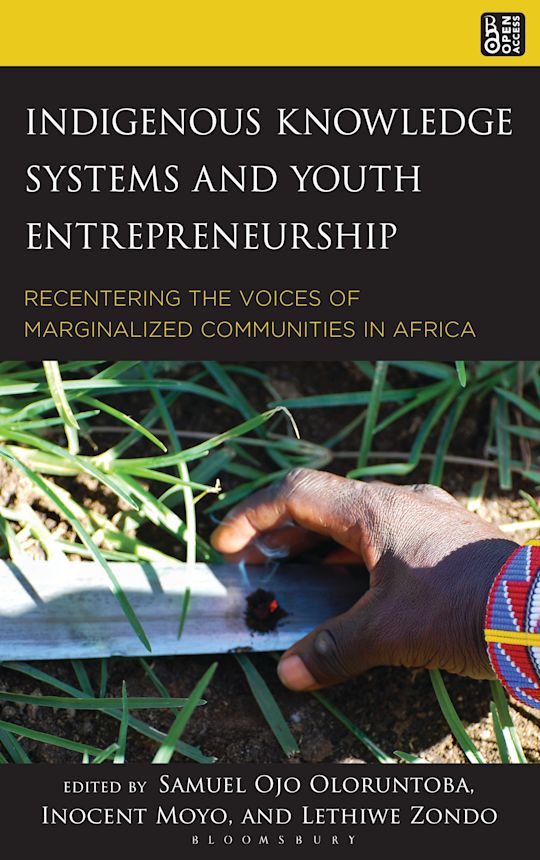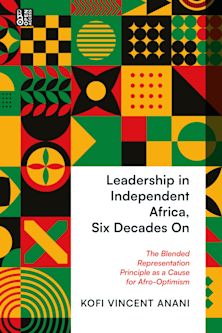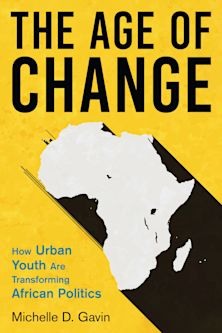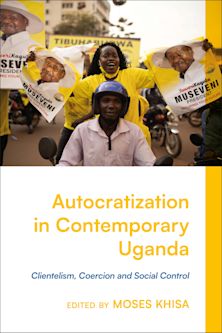Indigenous Knowledge Systems and Youth Entrepreneurship
Recentering the Voices of Marginalized Communities in Africa
Samuel Ojo Oloruntoba (Anthology Editor) , Inocent Moyo (Anthology Editor) , Lethiwe Zondo (Anthology Editor) , Yakubu Abubakar (Contributor) , Florence Asiimwe (Contributor) , Sofia Boqvist (Contributor) ,
- Open Access
Indigenous Knowledge Systems and Youth Entrepreneurship
Recentering the Voices of Marginalized Communities in Africa
Samuel Ojo Oloruntoba (Anthology Editor) , Inocent Moyo (Anthology Editor) , Lethiwe Zondo (Anthology Editor) , Yakubu Abubakar (Contributor) , Florence Asiimwe (Contributor) , Sofia Boqvist (Contributor) ,
- Open Access
This product is usually dispatched within 1 week
- Delivery and returns info
-
Free CA delivery on orders $40 or over
Description
This open access book analyzes the limitations of top-down intervention programs designed by the state to address the problem of unemployment among marginalized communities in Africa and foregrounds the centrality of IKS in fostering entrepreneurship. Samuel Ojo Oloruntoba, Inocent Moyo, and Lethiwe Zondo examine the solutions to these problems within the ongoing debate on decolonization of knowledge and epistemic justice. The contributors argue that when the voices of the marginalized communities are taken into consideration in the design of employment and entrepreneurship policies, such policies would be more effective, affirming the agency and rights within these communities. Using case studies and theoretical research, this book investigates how a better engagement with marginalized communities and indigenous knowledges in the design of entrepreneurship and employment policies could foster more positive outcomes in Africa. This book recenters the voices of Indigenous youth within entrepreneurship programs to highlight the interests, priorities, and challenges of these communities.
This edited volume was produced in the context of the African Indigenous Knowledge Research Network (AIKRN) in partnership with the Mastercard Foundation. This was a two-year initiative that ran between 2023 and 2025 to uncover and promote sustainable and scalable opportunities for youth employment grounded in Indigenous African knowledge systems and values. The views expressed do not necessarily represent those of the Mastercard Foundation, its staff, or its Board of Directors.
The ebook editions of this book are available open access under a CC BY-NC-ND 4.0 licence on bloomsburycollections.com. Open access provided in partnership with the Mastercard Foundation.
Table of Contents
Introduction: Indigenous Knowledge Systems and Youth Entrepreneurship: Recentering the Voices of Marginalized Communities in Africa
Samuel Ojo Oloruntoba, Inocent Moyo and Lethiwe Zondo
Part I: Theoretical Foundations of Indigenous Knowledge Systems in Africa
Chapter 1: Decolonizing Knowledge on Youth Employment and Entrepreneurship in Africa: Why the Voices of Indigenous Youth Matter?
Samuel Ojo Oloruntoba
Chapter 2: Afrocentrism: A Post-Colonial Approach to Researching Indigenous Knowledge in Africa
Endurance Uzobo
Chapter 3: Involving African Indigenous Communities as Co-Researchers: Generating Indigenous Knowledge through Participatory Research
Yakubu Abubakar
Part II: Selected Case Studies of Application of Indigenous Knowledge and Entrepreneurship in Africa
Chapter 4: Governance Institutions in Indigenous Communities: The Case of Maasai Communities in Arusha, Tanzania
Ambrose Kessy
Chapter 5: Reforming Governance Mechanisms for Advancement of Batwa Indigenous Youth Entrepreneurship Opportunities
John Mary Kanyamurwa
Chapter 6: Milk Safety Indigenous Knowledge Practices of Small Holder Banyankole Farmers in Sanga Sub County, Kiruhura District Uganda: A Gendered-Centered Assessment.
Judith Irene Nagasha, Elizabeth Kyazike, Florence Asiimwe and Sofia Boqvist
Chapter 7: Natural Resources Governance and Sustainable Development in Southern Africa: the case of Youth Entrepreneurship development in iNanda Tribal Land surrounding iNanda Dam.
Lethiwe Zondo, Khayelihle Sibisia and Wandile Zondo
Chapter 8 Exploring the Role of Cultural and Knowledge Practices in Small-Scale Fisheries in South Africa
Samantha Williams
Chapter 9: Indigenous Communities and Access to Natural Resources: Unlocking the Entrepreneurial Potential
Inocent Moyo and Jabulile Happyness Mzimela
Chapter 10: Youths' Perspective on Entrepreneurship in Indigenous Communities in Africa
Vincent Eoghere Efebeh
Chapter 11: Youth Perspectives on Entrepreneurship and Employment in Indigenous Communities among the Ijaws in Nigeria
Philips Obololi-owei Okolo
Chapter 12: Indigenous Youth and Government Entrepreneurship Programmes in Ogoni, Nigeria
Kialee Nyiayaana
About the Editors and Contributors
Product details

| Published | Sep 18 2025 |
|---|---|
| Format | Hardback |
| Edition | 1st |
| Extent | 248 |
| ISBN | 9781666952049 |
| Imprint | Bloomsbury Academic |
| Illustrations | 4 BW Illustrations, 3 BW Photos, 10 Tables |
| Dimensions | 229 x 152 mm |
| Publisher | Bloomsbury Publishing |
Reviews

OPEN ACCESS
Bloomsbury Open Access
Read and download this book free of charge from Bloomsbury Collections.


































